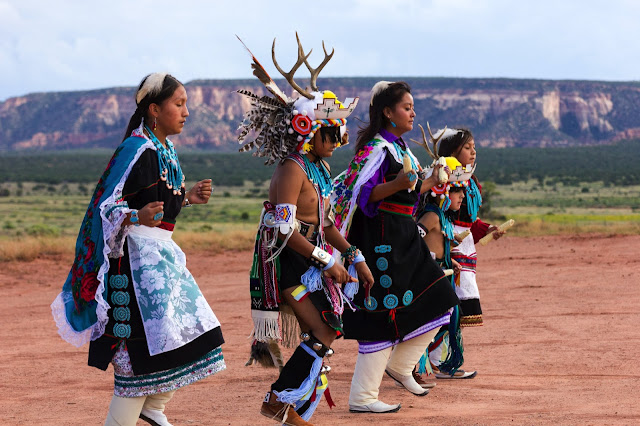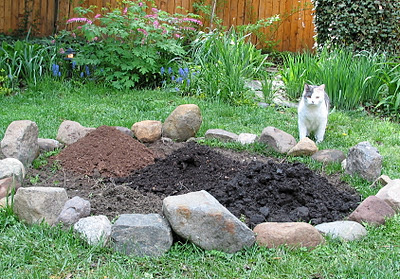'From day one, it was a holocaust'
Published by the Huffington Post in 2010. This article was part of a project funded by the George Polk Program for Investigative Reporting. For more on topics like this, see my book, American Apartheid: The Native American Struggle....
 "I'm 56, and I remember the first day of first grade as if it were yesterday. The nun told us children they'd teach us to read and write and that they'd civilize us because we were heathens, pagans, savages, and the devil's spawn. They'd teach us that God is love.
"I'm 56, and I remember the first day of first grade as if it were yesterday. The nun told us children they'd teach us to read and write and that they'd civilize us because we were heathens, pagans, savages, and the devil's spawn. They'd teach us that God is love.
 "Breakfast was oatmeal, and other meals were bean soup and a slice of bread. One day, a friend and I discovered that one window's chain-link covering [shown left] was loose, so we snuck out and went into the nuns' and priests' dining room. There were tablecloths and flowers and fresh fruit. We looked in their fridge and saw pies and cakes. We saw pans of rolls and stole some and ran into a field, where we ate three. We couldn't eat any more, so we hid the rest in the dorm. But you could smell them, so we were caught and whipped.
"Breakfast was oatmeal, and other meals were bean soup and a slice of bread. One day, a friend and I discovered that one window's chain-link covering [shown left] was loose, so we snuck out and went into the nuns' and priests' dining room. There were tablecloths and flowers and fresh fruit. We looked in their fridge and saw pies and cakes. We saw pans of rolls and stole some and ran into a field, where we ate three. We couldn't eat any more, so we hid the rest in the dorm. But you could smell them, so we were caught and whipped.
c. Stephanie Woodard; photographs by the subject of the article, used with permission.
From the late 1800s until well into the 20th century, the federal government compelled Native parents nationwide to send their children to boarding schools designed to assimilate them. Many of the institutions were run by the Catholic Church, which the government paid to "kill the Indian, save the man," in the parlance of the day. To date, more than 100 ex-students of the half-dozen boarding schools in South Dakota have sued the Catholic Dioceses of Sioux Falls and Rapid City, as well as the religious orders that ran the institutions, charging that priests, nuns, and lay employees raped, sodomized, molested, and brutalized them. For more on the lawsuits, click here.
Here is one plaintiff's story; her case has been dismissed, and she is seeking to have it reinstated. An Ihanktonwan Dakota, she attended St. Paul's Indian Mission, in Marty, South Dakota, during the 1960s. Though the school (shuttered buildings, shown below) was in her community, the Yankton Sioux Reservation, the tribe's children were required to board there during the school year. The institution was renamed Marty Indian School when it came under tribal control in 1975.
"From day one, it was a holocaust. They took our identity away. They cut our hair and took our clothes and mixed them all up in big bureaus, so kids right away started fighting over clothes as they hurried to get dressed in the morning. They also kept a daily list of those who'd spoken even a few words of our language, and every night they lined them up, pulled down their panties, and whipped them. We were not fluent in English, so most of us were whipped nightly. I often had two whippings because I would volunteer to take my sister's.
"When I was in first grade, I came upon a kind of museum in the basement of the building, where they kept lots of our people's things -- pipe bags, war bonnets and a pile of buffalo robes, like a bed. I'd sneak in to look at the things, until one day I discovered that the pile of robes was where they brought boys to rape them. I was so shocked by what I saw and still am to this day.
"When I was in first grade, I came upon a kind of museum in the basement of the building, where they kept lots of our people's things -- pipe bags, war bonnets and a pile of buffalo robes, like a bed. I'd sneak in to look at the things, until one day I discovered that the pile of robes was where they brought boys to rape them. I was so shocked by what I saw and still am to this day.
"In my early years, the priest, Father Francis, would come to the little girls' dorm with candy in his pockets. He'd sit in a chair, and girls would run to him and ask for sweets. They'd climb on his lap, and he'd tickle them and make them laugh. I'd known great kindness and affection from my father, but this seemed different, so I watched. Finally, in third grade, I decided I wanted to play, too, and found out he was fondling the girls under their skirts. After that, I stayed away from him.
"When we went home for summer vacation, we never talked about the abuse. I once asked my father, 'Why do I have to go?' And he said, 'Because they'll put us in jail if you don't.' He told me to do what they said, but that I didn't have to believe them. He also advised me to befriend any child who looked scared or alone, so I helped a Cree friend from a Montana reservation meet her brother secretly. I'd watch out while they cried and hugged and spoke their language.
"My father also told me that my grandfather had helped arrange for a priest to come to our reservation and open that school so that none of the children here would suffer the fate of his generation: to be stolen when as young as two-years-old and shipped in cattle trucks to boarding schools on the East and West coasts. They thought having a school here would be better. Their intentions were good.
"My family went to our ceremonies during the summer, though we had to be very careful because they were outlawed until 1978. The fear was so strong. My mother's grandfather, a medicine man who'd refused to give up our ways, had been committed to an asylum in Canton, South Dakota, where they castrated him, among other horrible things. My dad's dad was one of the few committed there who was ever released. He came home to die.
"Recently, I've looked for classmates. A lot have died, some through suicide; others became alcoholics. Many have not had happy lives. Every story I heard reinforced the last one.
"As for me, I have children and grandchildren, and I sew and bead and go to ceremonies. I don't pay attention to anything else. I like it when I'm called a heathen. I can laugh at it now. The Church is all an ugly joke."
c. Stephanie Woodard; photographs by the subject of the article, used with permission.

